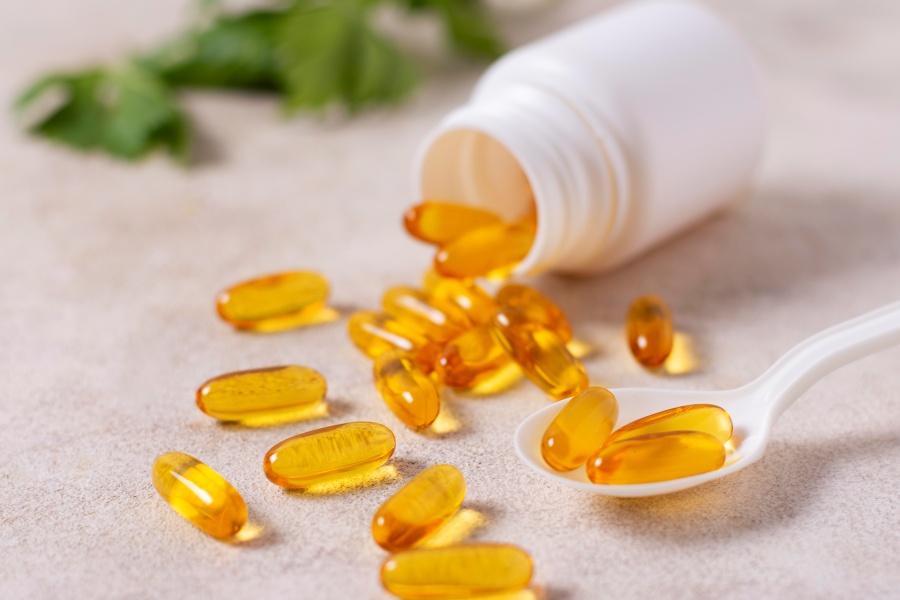Softgel Encapsulation Machines
The softgel encapsulation machines is widely used for encapsulating liquids, suspensions, oils, and semi-solid formulations.
Explore Our Softgel Encapsulation Machines
A softgel maker is specialized equipment used in the pharmaceutical, nutraceutical, and cosmetic industries to produce soft gelatin capsules (softgels). Check out our equipment list below!
This high-capacity machine can produce 370 million granules annually.
The medicine injector uses an advanced linearity driving system to ensure that the precision of charging and filing is greater than 98% accuracy.
The advanced water-cooling system prevents degradation caused by air.
Capsule package error rate is less than 2%.
Our Softgel encapsulation machine can quantitatively inject oils, mixing suspensions, and pasty masses into the capsule to form all kinds of softgels in various sizes, shapes, and colors.
Specification
| Model | 115soft gel capsule making machine | 300 soft gel capsule making machine |
|---|---|---|
| Production capacity | 12,800 tablets/ hour | 18,000 tablets/ hour |
| Sealable capsule filling | Solution,suspension, microemulsion | Solution,suspension, microemulsion |
| Applicable capsule | 00-4# gelatin,plant capsule | 00-4# gelatin,plant capsule |
| Environmental requirements | Room temperature around 20C,humidity 40% -55% | Room temperature around 20C,humidity 40% -55% |
| voltage | Three-phase 380V/220V 50Hz | Three-phase 380V/220V 50Hz |
| Total power | 4KW | 9KW |
| Compressed air | 0.6Mpa | 0.6Mpa |
| Total weight | 650KG | 2300KG |
| Dimensions | 600*850*1650MM(ength xwidth x height) | 3800*900*1900MM(ength xwidth x height) |
Applicable Products



Explore the details of our softgel makers
Key Components of Softgel Encapsulation Machines

PLC-based controls for temperature, speed, fill volume, and capsule size.
Automated Control Panel
Spreads melted gelatin into thin, uniform sheets.
Gelatin Ribbon Formation
Softgels pass through drying tunnels to remove excess moisture.
Tumble Dryer
Medicine passes from the hopper through the tube to the softgel encapsulation station.
Medicine HopperHow Does Softgel Encapsulation Machine Work
- Step 1. Gelatin Preparation: A gelatin mass (made of gelatin, water, plasticizers like glycerin, and sometimes colorants) is melted and maintained at a controlled temperature (about 60° C). The gelatin mixture then moves into the machine's gelatin reservoir.
- Step 2. Gelatin Ribbon Formation: The melted gelatin is pumped into spreader boxes, which evenly distribute it onto two rotating cooling drums. As the drums rotate, the gelatin cools and solidifies into thin, flexible ribbons (typically 0.8-1.2 mm thick).
- Step 3. Filler Material Dosing: The liquid or semi-solid filler material (e.g., oils, vitamins, suspensions) is pumped through a precision dosing system.
- Step 4.Rotary Die Encapsulation: The two gelatin ribbons meet between a pair of rotating dies (molds) with capsule-shaped cavities. The dies rotate in sync and press together, sealing the gelatin around the filler material and cutting the capsule.
- Step 5. Drying & Inspection: Freshly made softgels are soft and sticky, so they pass through a drying tunnel of 20-30% humidity at 20-30° C for 12-24 hours to remove excess moisture.
- Step 6. Polishing & Packaging: Softgels are polished in a tumble dryer to remove surface oils, then are sorted and packaged in blister packs or bottles.
FAQ
Pharmaceuticals (vitamins, pain relievers, supplements)
Nutraceuticals (fish oil, herbal extracts, CBD)
Cosmetics (beauty supplements, collagen)
Veterinary medicine (animal health products)
Gelatin melting & preparation system
Dosing pump for filling material
Rotary die encapsulation unit
Gelatin ribbon forming system (cooling drums)
Drying tunnel & inspection system
PLC-based control panel
Oils (fish oil, vitamin E, MCT oil)
Suspensions (herbal extracts, probiotics)
Semi-solids (paste-like formulations)
Not suitable for: Highly acidic/alkaline or water-based liquids as they may dissolve the gelatin.
Lab-scale machines: 5,000-20,000 capsules/hour
Industrial machines: Up to 200,000 capsules/hour
Common sizes: 1 to 20 mL, but machines can be adjusted for custom shapes (oval, round, tube).
Small-scale: $50,000-$200,000
Industrial-scale: $300,000-$1M+
Yes, by using hydroxypropyl methylcellulose (HPMC) instead of gelatin.
Typically 12-24 hours in a controlled drying tunnel.
Yep!!!
Here it is:



Melts and maintains gelatin masses at a controlled temperature.
Gelatin Preparation System